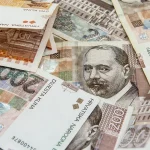As Poslovni Dnevnik writes, PM Plenkovic has stated that Croatia’s inflation measures will be put into force as of April the 1st this year.
“The current global rise in energy prices has caused a wave of rising prices across Europe. Fuel prices in Europe are rising due to higher demand after the coronavirus crisis, the second reason is the situation with Russia, which is the largest supplier and has reduced production, Norway can’t increase its production, in Europe there is higher demand due to recovery and colder winters. 43% of European gas comes from Russia, 23% comes from Norway, 11% from Algeria. Europe imports 61% of its total energy needs and 90% of its gas needs, which accounts for 21% of energy consumption,” said PM Plenkovic, adding that the package of measures will be in force from the aforementioned date.
“The average price is 120 mW / h, 2.7 times higher than in Croatia. In Croatia, we had a system in which the prices were regulated for a year. If it weren’t for this intervention, the prices for electricity would increase by 23 percent from April the 1st, and for gas, by 79 percent “, he emphasised.
“The package we’re presenting today is worth 4.8 billion kuna. It was done systematically, in coordination with all ministries and bodies. It applies to households, companies and farmers. It’s universal, meaning it’s aimed at all users. It refers to the reduction of household bills, tax relief, one-off benefits for pensioners, a special programme for fishermen Gas prices will grow to a maximum of 29 percent with these measures in place. As far as gas is concerned, if we did nothing, 0.326 kW / h would jump to 0.574 kuna. When we reduce VAT, we arrive to 0.482, and with an additional subsidy we come to 0.382 kuna per kW / h,” said PM Plenkovic.
”These benefits will apply to all households that use gas. The amount of support directly on the bill is 10 lipa per kilowatt-hour. The amount of the discount is shown on the invoice with a separate item. The cost of this measure is 600 million kuna, and we’ll provide it by selling greenhouse gas emissions at auction. By changing the law, we’ll permanently reduce the VAT on gas and heating from 25 percent to 13 percent. This equalises the VAT on electricity and gas and thermal energy,” he added.
Gas will be reduced from 25 percent to 5 percent from April the 1st, 2022 to March the 31st, 2023.
VAT on food is also being reduced from 13 percent down to 5 percent on fresh meat and fish, eggs, fruits, vegetables, edible oils and fats, baby food, agricultural costs, seedlings, fertilisers and pesticides, and from 25 percent to 5 percent. percent on butter and margarine. VAT on products such as sanitary pads and tampons is also being reduced from 25 percent down to 13 percent. VAT on tickets for sports, cultural and other events is also being reduced from 25 and 13 to 5 percent.
The amount of vouchers for the most vulnerable in society is also being doubled, increasing from 200 to 400 kuna.
For more, check out our politics section.









